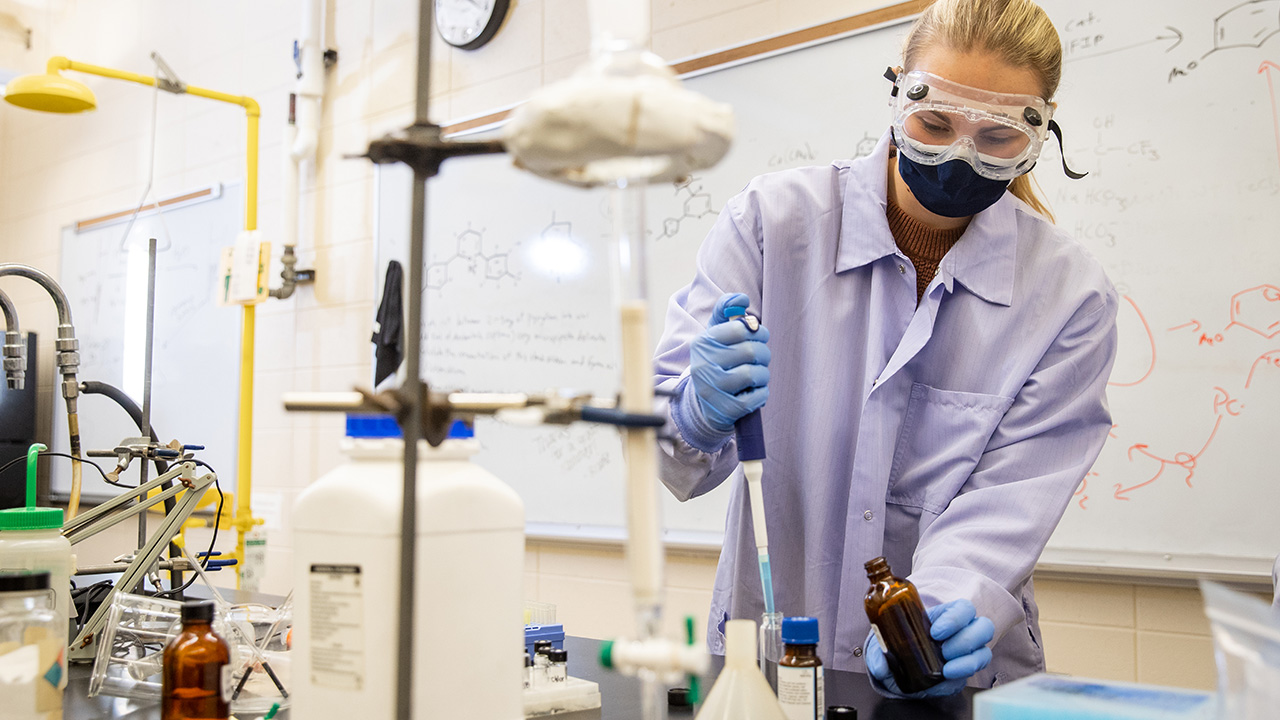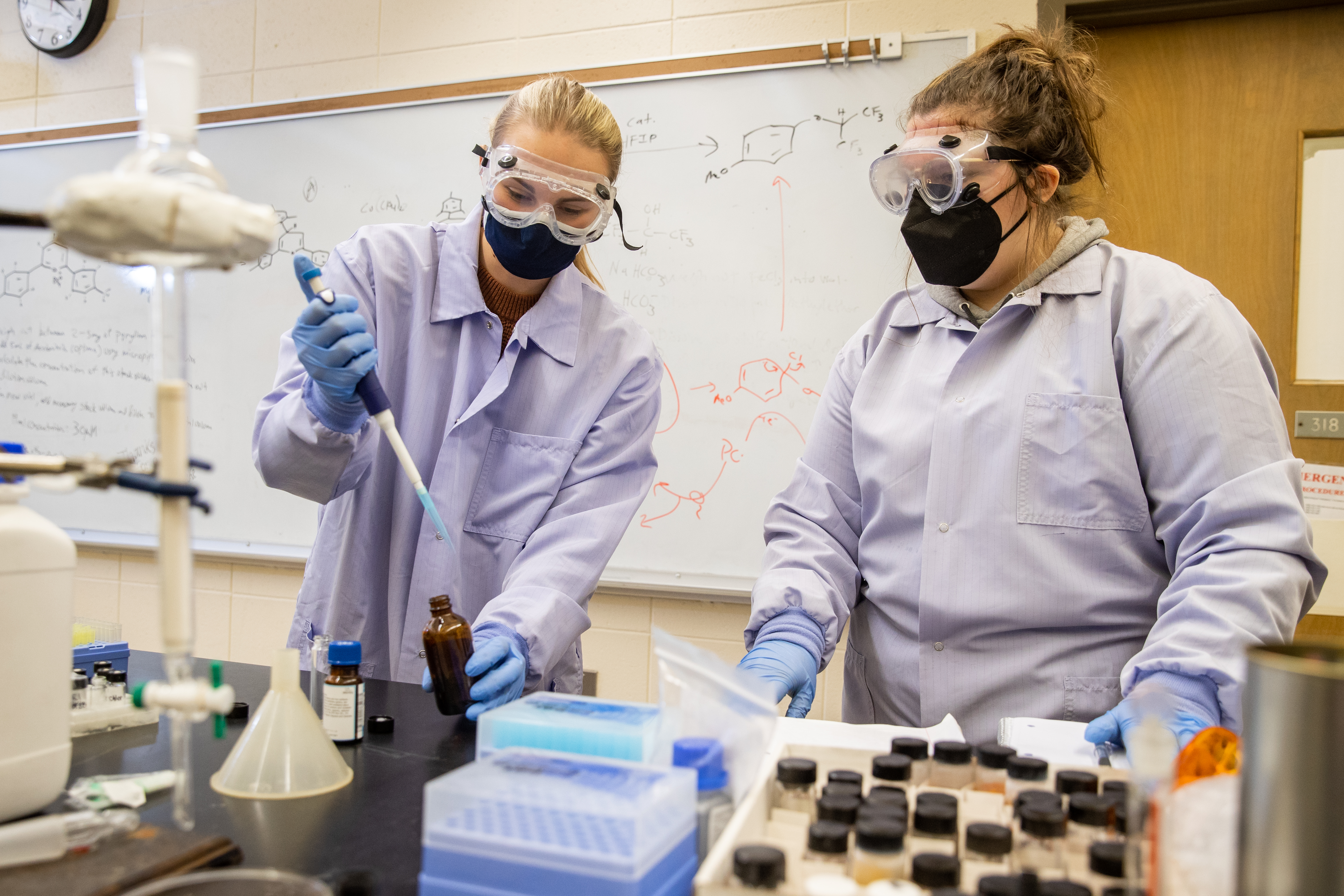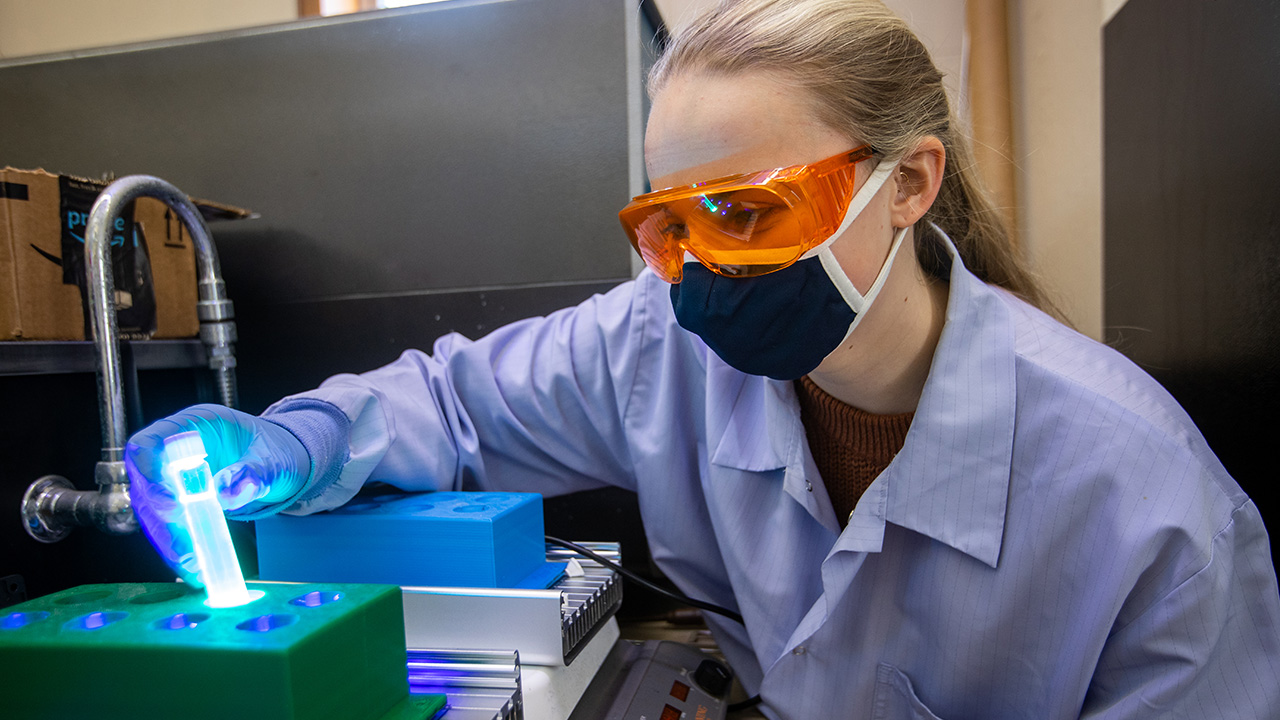


University of Wisconsin-Platteville chemistry majors Brooke Steeno and Natalie Hayes will travel to the state capitol on March 9 to present their research project, “Turning on the Light: Developing Next Generation Agrochemicals via Organic Photochemistry” at Research in the Rotunda. Together, they are assisting Dr. Ian MacKenzie, assistant professor of chemistry in the area of photochemistry, using light to power new chemical reactions.
“The overarching goal of my part of the project is to create multiple different photocatalysts,” said Hayes, a senior. “They have the same structure, but because of their structure you can modify these photocatalysts to work under different wave lengths. We've developed a new synthesis route for this type of photocatalyst that is faster and more cost effective than routes described in previous research. Beyond the goal of creating more of these modular photocatalysts, we're also striving to optimize the Grignard and oxidation steps to get the max yield of product."
Steeno started her research developing new photocatalysts while also using light to alter a drug molecule in summer 2021. She conducted this research through the Summer Undergraduate Scholars Program. This fall, she received the Undergraduate Research, Scholarly and Creative Activity Scholarship (URSCA) to continue her research.
“I made three new molecules with fluorinated groups. They have never been made previously,” said Steeno, a senior from Pulaski, Wisconsin. “The similarities I see are on a structural basis between fungicides and the molecules I have produced.”
Steeno hopes these new molecules may be used in agrochemicals and for crop protection. This semester she will continue her work on the alerted drug product. Steeno would like to produce more novel fluorinated molecules with fungicide potential.
“Organic chemistry is a lot of trial and error, especially with optimizing a reaction, which was the first step of my research this past summer, to optimize a basic reaction,” said Steeno. “In that I made the one new molecule and was able to apply my optimized reaction to a different substrate being the drug molecule, Griseofulvin. I had to optimize the original reaction and that took a couple months.”
Hayes became involved in the research project in the summer of 2021. She also received the URSCA Scholarship. Throughout her experience, Hayes acknowledged how this opportunity has introduced her to new interests including spectroscopy and plants.
“I find the photochemical properties of plants really interesting. I want to learn more about that in the future,” said Hayes. “I have learned a lot about lab etiquette and how to read data. To look at a graph for taking an absorption spectra. During my time over the summer, I got to see one of the mini-tau being assembled. It takes lifetime data of a reaction. It measures in nano seconds how long the reaction lasts. I got to see it be put together and see what each part does. It was really cool.”
As Steeno and Hayes continue to conduct their research, they are also preparing to share their findings with state legislators, peers from across the UW System and the public.
“I’m excited to show lawmakers what I have been able to accomplish at UW-Platteville,” said Steeno. “We make a lot of progress at UW-Platteville in the science world. I want to show them you can do anything, even if you are from a small town like Pulaski and chose to go to a smaller school like UW-Platteville for your undergraduate degree.”
“I’m looking forward to sharing how far we have come. This is what we all did together. It’s important for us. I like the idea of these photocatalysts,” added Hayes. “This project is cool. We need to spread the word and talk about photocatalysts. I’m excited to see the other projects too.”
Both students credit UW-Platteville with giving them hands-on tools to dive deeper into the field of chemistry. Steeno, who will graduate in May, is planning to further her education. She has applied to biochemistry and chemistry graduate programs.
“At UW-Platteville, I have gotten a lot of opportunities,” said Steeno. “Doing research as an undergrad is important especially for STEM majors. UW-Platteville does a great job of handing them out to students.”
Hayes echoed that sentiment, “It gives us experiences we might not otherwise have had. I like to have tangible and hands-on experience. It’s how I really understand.”
To learn more about Research in the Rotunda, visit www.wisconsin.edu/research-in-the-rotunda.